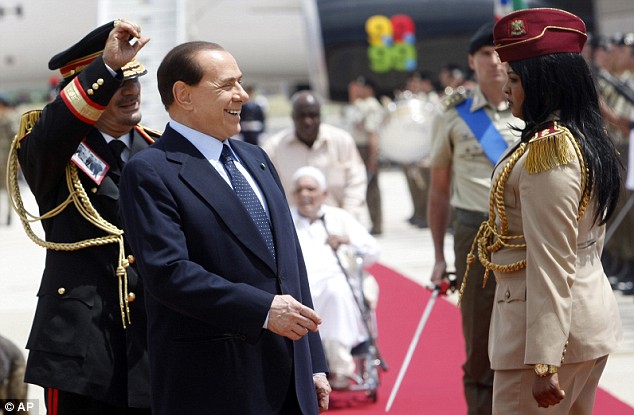(Do something useful No.1)
Just back from China and from pretty much getting latest book finished. Except for a small hitch, about which I will blog later.
Meantime, I am adding a new Category button called Do Something Useful. I will use it to file interesting miscarriage of justice and political persecution cases about which readers of this blog might want to do something. Like onpass the cases to friends, sign petitions, even write letters. Imagine how good you will feel if someone you decide merits your support gets let out of prison…
Please only support cases that you have read. Do not assume that me posting stuff automatically means people are innocent of what they have been accused of.
Most of the cases will come from China and Italy since they are — in institutional terms — the Third World countries in which I spend most time. But let’s not pretend nothing ever goes wrong in the UK; there is just a lot less of it. At some point I will go through previous posts and link ones like Knox and Sollecito into this new category.
Our starter for ten today is a lady from China called Wang Lihong. Read on. The link to her case on the Global Voices campaign site is here.
The Chinese government has been arresting human right activists and political dissidents since February 2011 under the pretext of the Jasmine crack down. Many of the detainees have been released, including the prominent artist activist Ai Weiwei. However, a female activist, Wang Lihong has been detained for 117 days, with the court finally deciding to prosecute her last week.
A number of prominent bloggers have decided to break the silence and campaign for the release of Wang Lihong even though the political climate is still tense. Independent documentary maker, Ai Xiaoming has written a biography [zh] for Wang Lihong in her blog:
Who is Wang Lihong?
Wang Lihong
????1955?10??????????????????????????1975?4?????????1978?10??1982?7????????????????????????????????1991???????????2008????????????????????????????
Wang Lihong was born in October 1955 in an army family in Qingtao and finished her elementary and secondary education in Beijing. She was sent to serve the rural society in Shaanxi in April 1975 and enrolled in the Chinese Department of Yanan University between October 1978 and July 1982. She returned back to Beijing upon graduation and worked there. She left her job in 1991 and became an entrepreneur. She retired in 2008 and started participating in social welfare activities online.
Wang was arrested on March 21, 2011, under the charge of “inciting social unrest”. Later in the official arrest document issued on April 22, 2011, the charge has been changed to “disturbing public transportation in a crowd”. Many believed that the police referred to the “surrounding gaze” flash mob action in Fujian, back in April 2010 (see below).
Below is an incomplete list of social activities that she has participated in since 2008.
- The police murder case of Yang Jia on July 1 2008. She visited Yang Jia’s mother and interviewed her and blogged about Yang Jia’s case.
- Together with another blogger, Temple Tiger, she helped the homeless people around Tienanmen square.
- The Deng Yujiao self defense murder case in May 2009. Wang Lihong travelled to Hubei to join the “surrounding gaze” flash mob in order to pressure the court for an open and fair ruling on Deng’s case.
- On May 2009, Wang campaigned for a visit to petitioner, Yao Jing, who was seriously injured by local government officials from Linyi who tried to intercept her petition in Beijing. Together with a group of bloggers, Wang raised donation for Yao Jing’s hospital and lawyer expenses.
- Campaigned for human rights lawyer Ni Yulan, who was prosecuted by Beijing authority soon after she was released from jail.
- Participated in the “surrounding gaze” flash mob action in support of the three Fujian netizens who was accused by local authorities for defamation in their citizen reports about a suspected rape case in March and April 2010.
- Celebrated the Nobel Prize award to Liu Xiaobo in October 2010. She was detained for two weeks and was under house arrest for several months.
- In March 2011, she visited two activists in a Henan detention center, Wang Yi who was sentenced to one year labour education for writing a tweet and Tian Xi, an AIDS activist.
Wang’s citizen practice
During her detention, the police have asked Wang to make three promises for a probation arrangement: 1. to never meet sensitive people again; 2. to never travel to sensitive regions again; 3. to never get involve in other people’s business again.
She refused to sign the document and made a statement instead (via @Wanyanhai [zh]):
????????????????????????????????????????????……????????????? ????????????????????????????????
I am a person with a conscience. I cannot guarantee that I can keep silence in front of others’ suffering. I can’t guarantee that when I stand in front of Qian Yunhui, Tang Fucheng, Li Shuling… I can pretend that I do not see their miseries. If I keep silence in front of all these suffering and evil deeds, the next person beaten down by evilness will be myself.
Prominent citizen reporter, Tufuwugan, has encountered with Wang in various public incident since 2009 and he has written a blog post on his impressions of Wang [zh]:
????????????????????????????????????????????????????????????????????????????????????????????????????????????????????…?????????????????????????????????????
We have completely different styles. She likes to argue for the truth and never compromises while I like to hang around with a [flash mob] group and joke around. That’s why I really like her righteousness and simple mindedness. She has everything written in her face and never lied about her feelings… She is a really engaging citizen and a thorn in the eyes of those mother f**kers.
What Tufu and Wang have been doing all these years has opened up a new political space in China. Ai Xiaoming wrote another blog post about the significance of Wang Lihong’s citizen action [zh]:
?????????????????????????????????????????????????????????????????????????????????????????????????????????????????????????????????????????????????????????????????????????????????????????????????????“??????”??????????2010?????????????????????????????????????????????????????????????????????????????????????????????????????????????????????????????????????????????????????
Free Wang Lihong
A blog, Free Wang Lihong [zh], a Facebook event page [zh] and a Google Group [zh] have been set up to collect articles and news reports about Wang and campaign for her release.
Back in Twitter, @weiquanwang has created a signature petition page [zh] for the release of Wang Lihong. Children’s rights activist @zhaolianhai [zh] also helps collecting signatures via a Google Spread Sheet [zh].
Some netizens have claimed that they will surrender themselves to the police if the court sentences Wang to imprisonment. @tufuwugan [zh] is among one of them and there are more, he reports via Twitter:
???????????????????????????????????????????????????????????????????????????????????????????????????????????????????????????????
Just now I received a phone call from Chu Chengzhi saying if Wang is founded guilty, he would surrender himself. He asked me to get some legal advice first. He is right. I was also involved similar “crimes”. If she is guilty, we are all guilty, let us all be guilty. They just want to terrify people through prosecution. Let’s take the initiation to take your prosecution, to fulfill your animal thirst for prosecuting people.
Yin Longlong has written a poem, ‘Search for Wang Lihong‘ [zh] to pay his tribute to Wang. Below is the translation of the poem’s first verse:
???????????
??????????????????????????
?????
????????????????
????????????????????
??????????????
???
??????????
I look for my pride, a steel file
A string. The sea has submerged the skyscrapers, princesses and mermaids outside the Emperor’s hall
In the century before the last one
I look for Wang Lihong, only to tell her that the Dynasty is falling apart
Tell her that we have chosen silence because they are worthless to listen to
Tell her that there are still breathes under the earth of our dead sisters
Tell her
Animals and insects are inside the summer prison cell






